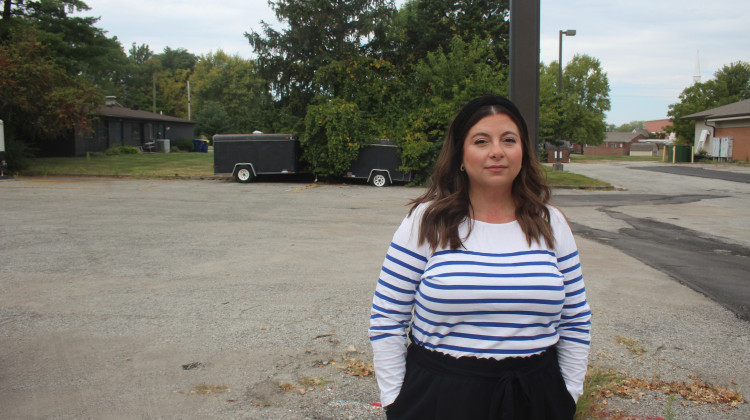
Matthew Flaherty, of the Environmental Resilience Institute at Indiana University, addressing county commissioners.
Screenshot from YouTubeTippecanoe County commissioners were recently given an update on how prepared the county is for the impacts of climate change.
The county is one of over a dozen municipalities across the state - including West Lafayette, Lafayette, Bloomington, and Fort Wayne - undergoing an assessment of their preparedness.
Matthew Flaherty is with the Environmental Resilience Institute at Indiana University. Flaherty said that based on different greenhouse gas emission scenarios, the county could see anywhere from two to three times the number of high heat events by 2050.
“Recent studies show for every dollar of federal grants spent on improving disaster resilience, society saves six dollars,” he said. “This is really about being proactive and planning for events before they happen.”
Flaherty said he feels positive about where the state is currently in terms of preparation.
“We’re doing pretty well honestly with starting to engage with the issues,” he said. “This is a centuries-long problem and we’re going to be dealing with the impacts of the last 150 years since the Industrial Revolution for a long time… the fact that we have over 40 local governments that have worked with us on some element of climate planning around the state across partisan divides… we really are seeing that folks around the state understand that there are impacts coming their way.”
Amy Krzton-Presson is a contributor to the regional Climate Action Plan. She said the Purdue Climate Change Research Center predicts that Indiana’s climate will be closer to that of Arkansas in the coming decades.
“The idea of a Midwestern region feeling like a Southern region is pretty striking,” she said.
More high-heat days in the region is especially concerning for low-income residents, who may not have access to an air conditioner.
Krzton-Presson said one of the issues the climate action plan is looking to solve is where people can go to cool off.
“Figuring out the best places to put what we’re calling resiliency hubs,” she said. “Places that ideally people can go to cool off when there are several days in a row with high heat. They would be open to the community and placed strategically where people could access them and in neighborhoods where people need them.”
Tippecanoe County scored average or above average on preparedness for increased heat, precipitation, and floodplain management.
 DONATE
DONATE








 Support WFYI. We can't do it without you.
Support WFYI. We can't do it without you.